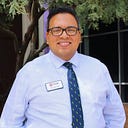Learning and living through our own history
In the book Massacre on the Lordsburg Road — a dramatic recounting of the death of two parents and the kidnapping of a six-year-old boy is told in great detail and in high drama.
It is one of the everyday tragedies of the Apache Wars during the late 19th century, and most of us don’t know about it. What most of us may know comes from a small description of the event, on those side-of-the-road signs in the long and flat road between Silver City and Lordsburg.
Many of us living in the large and open southwest are familiar with these signs sharing historic records of events and moments over the last two centuries in this place we call home. And yet, most of us don’t read them.
I have to admit that I’m one of those people who turns a blind eye to these markers of history; and so, I know less of our own history than I would like.
In a 60-mile radius of where I live, the kinds of moments that fill up books are everywhere. From Billy the Kid to Geronimo, the characters that you read about where here, walking among our ancestors, real people from a distant time.
It’s hard to imagine the kinds of stories we learn about are happening today. What took place in the last five years, in your hometown, that merits a book or will someday make it to the big screen?
We don’t know because we don’t pay attention. The kidnapping of a young boy by Apache fighters, and the murder of his parents, one of them a judge, seemed like less than a turning point during the hot days of 1883. And yet, this event has taught me so much about who we were as people, and as a community, just a few generations ago.
We don’t pay attention. We look down. Our fingers, clicking and scrolling all day long, are leading our way. Reading is passé, and writing, don’t mention it. History is happening before our eyes. We don’t see it.
Someone in your community is making history. He’s writing laws. She’s changing lives. A business is making a difference. A non-profit is saving someone from being forgotten. But we don’t know it.
We are in our own worlds. Clicking and scrolling. We read texts not chapters. We write tweets not novels.
I’m reading Massacre on the Lordsburg Road because the more I know about our former neighbors and citizens the better I understand who we are today. One day someone will write (hopefully) the book on our history, the moments we are currently living. I’m not sure what they will pen, but I hope that the authors find the good among us and that they are not afraid to write about the bad.
Tomorrow’s readers should learn about our own mistakes, our downfalls, and our prejudices. That 1883 event is teaching me about me. What will our grandchildren learn about us?
No one knows what happened to Charley, an innocent boy taken away by the Apaches. It’s speculated he was taken into Mexico. Read the book and get lost in history. That’s what I did.
Now it’s time to make it.
